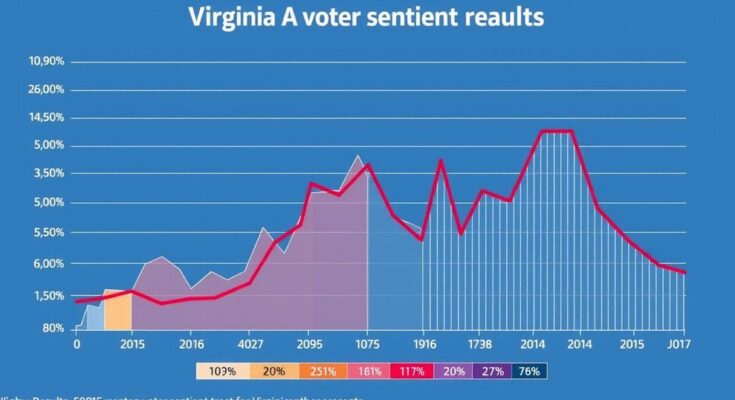Virginia’s recent special elections confirm no major shifts in voter sentiment as Democrats preserved their statehouse majority. The races serve as introductory reflections on the 2025 gubernatorial elections, with ongoing attention towards Governor Glenn Youngkin’s potential presidential aspirations and the dynamics of a divided legislature.
Virginia’s recent special elections have revealed no significant shifts in voter sentiment, which political analysts closely observe as indicators for future electoral trends. The Democratic Party managed to maintain its slight majority in the state legislature by securing victories in two liberal districts, despite Republican aspirations to overturn that majority following their success in the 2020 elections. These elections serve as the preliminary gauge ahead of the upcoming governor’s race in 2025, where intense partisan competition is anticipated.
As the legislature convened with Democrats holding a narrow edge in both chambers, the elections also spotlighted the ongoing political landscape under Governor Glenn Youngkin, who, despite being term-limited, has been considered a potential candidate for the 2028 presidential race. Analysts indicate that while the recent special elections lack the competitive edge of statewide contests, they do provide critical insight into the evolving political climate in Virginia, particularly amid rising national attention.
Amidst a challenging weather backdrop, voter turnout numbers were modest, suggesting that the Democratic turnout is being monitored post-election fatigue. With statewide elections set in odd-numbered years, the forthcoming gubernatorial election will be crucial in determining the political landscape as Republicans hope to demonstrate the viability of the Trump movement, while Democrats aim to convey its decline. Youngkin’s final year as governor may also prove challenging due to the divided legislature, where collaboration may be essential yet politically fraught, as quoted by political science expert Stephen Farnsworth: “This will be a session that will be devoted largely to making the other side look bad.”
Overall, these elections serve as a precursor to the broader electoral battles forthcoming in Virginia, highlighting both immediate partisan dynamics and longer-term implications for national electoral strategies.
Virginia is a politically pivotal state that conducts its gubernatorial elections in the year following presidential elections, making it a focal point for both political parties. The special elections held recently have resulted in the Democratic Party retaining its majority in the state legislature, which is viewed as a significant outcome given the state’s trend toward competitive politics. Observers are particularly interested in how these elections reflect broader voter sentiment nationally, especially with high stakes in the upcoming 2025 elections that will encompass all state houses and the governorship.
The results of the special elections in Virginia suggest a stable political environment, with Democrats maintaining control of the legislature against Republican efforts to shift power. As the state prepares for its gubernatorial elections in 2025, both parties are strategizing intensively, given the implications for national politics. The interplay between Governor Youngkin’s final year in office, a divided legislature, and the looming elections will be critical points of focus as political dynamics evolve leading up to 2025.
Original Source: apnews.com




